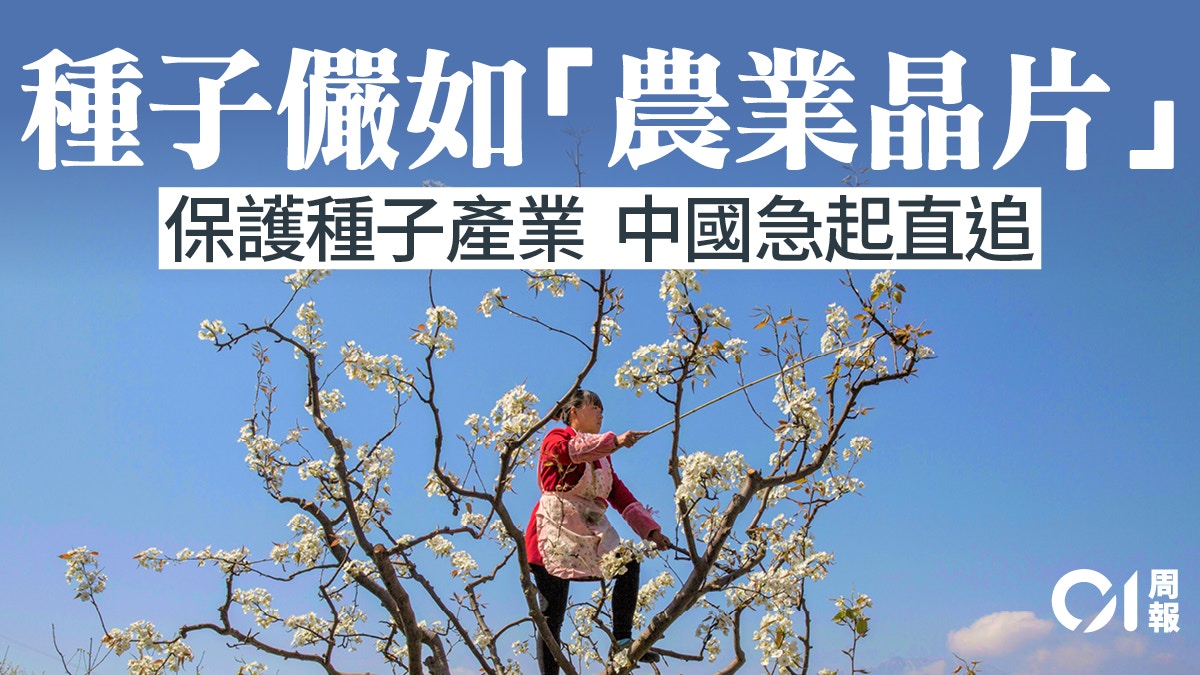Seeds are called "agricultural chips". How to protect germplasm resources and the intellectual property rights of seeds has become one of the focuses of public attention in recent years.
In 2020, President Xi Jinping set eight major tasks for 2021 at the Central Economic Work Conference. For the first time, he mentioned the need to solve the problem of seeds and emphasized the need to carry out technical research on "stuck neck" of seed sources.
In the past period, China's legislative standards on seed intellectual property rights were relatively low.
Taking European and American countries as examples, the United States established the Federal Seed Law as early as 1939, and Japan enacted the Seed and Seedling Law in 1947, becoming the first country in Asia to implement a new plant variety protection system.
How can China catch up with the protection of the seed industry when it is far behind the legislation of the international community?
China is a big country in agricultural production and a big demand for seeds. The annual consumption of crop seeds is more than 10 billion kilograms.
(Getty Images)
Before the promulgation of the "Seed Law", China has been in the stage of "Four Modernizations and One Supply", that is, the county is the unit to organize the unified supply of seeds, and implement the specialization of seed production, mechanization of processing, standardization of quality and regionalization of variety distribution.
On December 1, 2000, the "Seed Law" was officially implemented and became the first law related to seeds in China. Its legislative purposes include the protection and rational use of germplasm resources, the protection of new plant variety rights, the promotion of the seed industry law, and the protection of national food. safety etc.
In just 22 years, the "Seed Law" has been revised four times, which is not unrelated to the rapid development of the domestic seed industry.
The promulgation of the "Seed Law" represents that China has gradually entered the stage of seed marketization from the previous government-led fully closed development model, and encouraged scientific research units to establish seed companies to enhance the competitiveness of the seed industry.
The newly revised "Seed Law" expands the protection scope of new plant variety rights and increases the amount of compensation for infringement penalties.
At the same time, the "Civil Code" clearly lists new plant variety rights as the category of intellectual property rights.
Whether self-cultivation of propagating materials constitutes infringement depends on whether there is a commercial nature for external operation and sales after breeding.
Since the breeding unit or individual that has obtained the new plant variety right has exclusive rights to the authorized variety, other legal production units or individuals cannot sell "propagation materials" to the outside world; The owner of the new plant variety right does not pay royalties to the owner, which does not constitute infringement.
The competitiveness of China's crop seeds continues to rise, rising from only 0.02% of the international market in 2015 to 1.35% in 2019 (Getty Images)
For details, please read the 321st issue of "Hong Kong 01" Electronic Weekly Newsletter (June 13, 2022) " Only by Holding on
to the Seeds Can You Secure Your Jobs, China's Urgent Pursuit of Intellectual Property Protection and Provenance Research and Development
".
Click here
to try out the weekly e-newsletter for more in-depth reports.
Other exclusive selections from the
321st issue of "Hong Kong 01" e-Weekly News :
Perspective on the delisting of Chinese stocks: What is the role of Hong Kong in the ongoing financial war between China and the United States?
Twenty Years of Stolen MPF Hedging
Historical and cultural landmarks should not be rescued at the last minute
The Li Jiaqi Incident Tests China's Governance Flexibility
a dying johnson
From herding cows to making stars: the epitome of reform and opening up on Li Shufu's advanced road
Solid-state battery moves toward production could make electric vehicles more common

